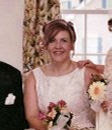"The National Association of Good Grammar - essentially a guy named Tom Torriglia and some friends who also paid attention in English class - say people have been mispronouncing the year for 10 years.
"NAGG is here to put everybody back on the correct path," Torriglia said by phone from his home in San Francisco. "We lost the battle when we went from 1999 to 2000 - but now we're hoping to win the war."
So, what is the correct pronunciation according to Mr. Torriglia?
"NAGG has decided to step in and decree that (2010) should officially be pronounced 'twenty ten,' and all subsequent years should be pronounced as 'twenty eleven,' 'twenty twelve,' etc.," proclaims the association's news release.Linguistics Professor George Lakoff of UC Berkeley disagrees with Torriglia in part, but ultimately concludes
"twenty ten" will win in the end:
"It's not wrong to say 'two thousand ten,' " Lakoff said. "And it's not like 'twenty ten' is the right way."There you have it; my mother and Mr. Torriglia should have a much less stressful decade if everyone gets the memo. I am highly motivated to spread the word.
His explanation involves cognitive reference points, standards of speech and recognizing as anachronistic the notion that grammar can be right or wrong as people and cultures evolve.
Nevertheless, Lakoff predicted, " 'Twenty-ten' is gonna take over. It's shortest. It's easiest to understand."
Grammar Police Badge designed by Darkervision.com



























As a professinal linguist, I agree with your mother and the so-called "grammar police" only to an extent. I agree that 2010 and years onward should be pronounced as "twenty", but not that 2000–2009 should have been pronounced with "twenty" as well.
ReplyDeleteThere are two factors as to why "two thousand" is appropriate for a pronunciation of years from 2000–2009.
1. Syllable count.
For 2000, "two thousand" has only three (3) syllables, while "twenty hundred" or "twenty oh-oh" have four (4) syllables. From 2001, the syllable count for both variations of pronuncation stayed parallel up to and including 2009. Now, in 2010, "twenty ten" has only three (3) syllables, while "two thousand ten" has four (4), or even five (5) if you say "two thousand *and* ten".
2. General subconscious effect of the appearance of the number.
Looking at the actual numbers of 1901, 1801, 1701, and all the way back to at least 1101, you could easily separate them into two separate number sequences (i.e., "nineteen" and "oh one"). But for 2001 (or 1001, which is too far back to have records of about this), the two zeros make it almost impossible for us to want to say "twenty" and "oh one" as the number out loud. It *screams* "two thousand (and) one" instead. Simply put, "two thousand" just *looked* and *felt* better to say for the years 2000–2009.
But look at 2010. That number, and years following it (i.e. 2015, 2079, 2120) are easily separated into two separate number sequences, allowing for us to find them easier to vocalize as such.
I also wanted to make a final point:
It is my belief that in about 30 years or so, after the "twenty" pronunciation has taken over and "two thousand" is rarely if ever used (except maybe during weddings), then people will eventually retroactively apply "twenty" to the years of the 2000s decade.
In otherwords, by the year 2050 or even earlier, I can see people talking about the "September 11th, twenty oh-one" attacks in retrospect, even though it would not be practical to do so if you had to speak about these years on a daily basis.
Patrick,
ReplyDeleteThank you for your valuable comment. In fairness to my mother, her beef was with those who used "two thousand and one" instead of "two thousand one". There were a surprising number of media types who inserted the "and", in my mother's opinion, unnecessarily. She was not insistent, as was Mr. Toriglia, the use of "twenty oh one" was preferable or correct.
I think your prediction the usage of "twenty" will take preference in time makes a good deal of sense. I also greatly appreciate your analysis on why the usage of two thousand made more sense during the past decade.
My daughter is a linguistics and classical studies double major. She only recently added the linguistics major though and hasn't really scratched the surface in the coursework. I will have to point her to your comment. I am thrilled to have a professional linguist offer an opinion here.